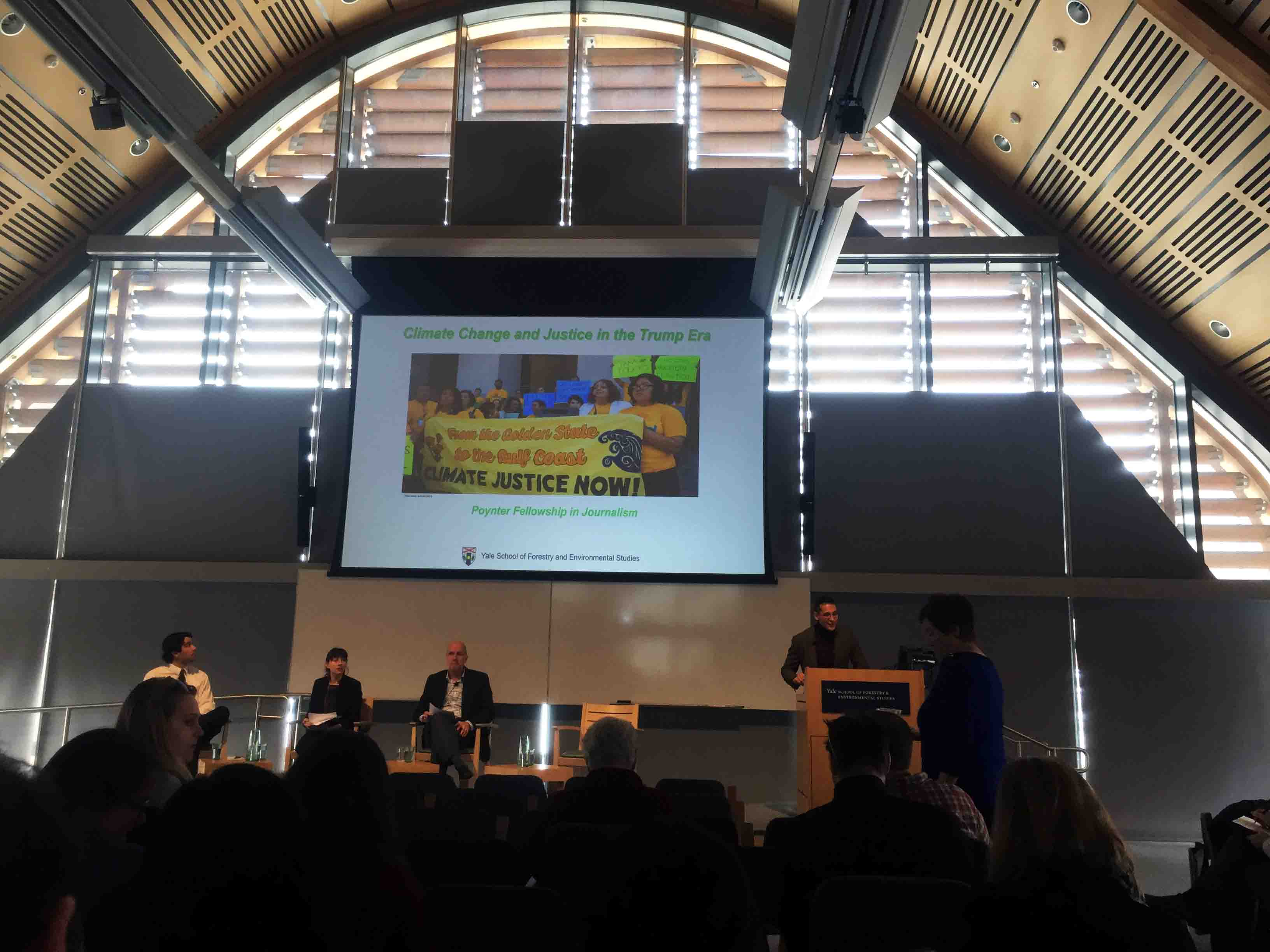
Three environmental reporters from California discussed the intersection of media and the environment at a panel discussion co-hosted by the Poynter Fellowship in Journalism and Environmental Justice at Yale on Tuesday afternoon.
The panel — which covered California’s environmental policies and its at-odds relationship with the federal government — selected speakers with national, state and regional expertise, said Michael Mendez, a researcher at the School of Forestry and Environmental Studies who introduced the speakers.
“California is a climate change firewall,” Mendez told the News. “No other state is advancing [climate policy] at the same rate.” He added that given the current state of the government and the Environmental Protection Agency, an understanding of California’s approach to environmental protection may offer regional and state governments an example to follow.
The event, titled “Climate Change in the Trump Era,” attracted an audience of around 60 undergraduates, graduate students and faculty members to Kroon Hall’s Burke Auditorium. Mendez opened the event with a brief introduction, then passed the microphone to the first speaker of the afternoon, Stuart Leavenworth.
Leavenworth, a national correspondent for McClatchy, shared his experiences covering climate change. He first addressed the topic of climate justice narratives — stories of journalists reporting the truth about the climate.
He recounted several of his experiences in environmental reporting in the Trump era, including the difficulty he faced in trying to speak with the administration about the controversial involvement of climate change denier Kenneth Haapala with the transition team for the National Oceanic and Atmospheric Agency.
“I tried to talk to a spokesman from the Trump administration who denied Haapala’s involvement with the transition team and was outraged when I ran a story,” Leavenworth said. “As journalists, we’re just trying to understand the reasoning behind [the administration’s] policies, but they aren’t making it easy.”
Next, Debra Kahn, a journalist for E&E News who reports on climate policy in California, offered a state-level perspective, addressing the discrepancy between California’s policies and those pursued by the federal government in the face of EPA funding cuts.
California’s cap-and-trade policies on carbon emissions, which mandate that industrial firms must purchase permits that limit the number of tons of carbon released into the atmosphere, may catch on in Oregon by 2020, Kahn said. She emphasized that while these policies have won support in California, it remains unclear whether they will influence other states.
“We’re seeing a really big shift within California,” Kahn said. “But how will it play outside California?”
Tony Barboza, a reporter at the Los Angeles Times, offered a regional perspective on policies in individual California counties. He spoke about his work reporting on the air quality in southern California and the dangers posed by the transportation sector and freeway development.
As a large state, he explained, California relies on transportation — which releases carbon dioxide and other harmful air particles — to connect different regions. Thus, increased development near freeways exposes people living in the area to dangerous particles in the air.
Each journalist emphasized the importance of the media and its impact on environmental policy.
“There are fewer of us than there have been, but the stories have never been greater,” Leavenworth said. “We have to get the facts right and remain fiercely independent.”
Sally Goodman FES ’19, who has attended other events sponsored by the Poynter Fellowship in Journalism, said she heard about the event on Facebook and that she enjoyed the panel more than previous Poynter talks.
California is on track to reach its goal of reducing carbon emissions to 1990 levels within the next two years — a reduction of approximately 30 percent, according to the California Air Resources Board.
Madison Mahoney | madison.mahoney@yale.edu







